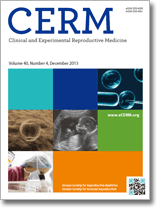 Preimplantation genetic diagnosis (PGD) is an assisted reproductive technique for couples carrying genetic risks. Charcot-Marie-Tooth (CMT) disease is the most common hereditary neuropathy, with a prevalence rate of 1/2,500. In this study, the authors report on their experience with PGD cycles performed for CMT types 1A and 2F. Before clinical PGD, they assessed the amplification rate and allele drop-out (ADO) rate of multiplex fluorescent polymerase chain reaction (PCR) followed by fragment analysis or sequencing using single lymphocytes. Six cycles of PGD for CMT1A and one cycle for CMT2F were performed. Two duplex and two triplex protocols were developed according to the available markers for each CMT1A couple. Depending on the PCR protocols, the amplification rates and ADO rates ranged from 90.0% to 98.3% and 0.0% to 11.1%, respectively. For CMT2F, the amplification rates and ADO rates were 93.3% and 4.8%, respectively. In case of CMT1A, 60 out of 63 embryos (95.2%) were diagnosed and 13 out of 21 unaffected embryos were transferred in five cycles. Two pregnancies were achieved and three babies were delivered without any complications. In the case of CMT2F, a total of eight embryos were analyzed and diagnosed. Seven embryos were diagnosed as unaffected and four embryos were transferred, resulting in a twin pregnancy. Two healthy babies were delivered. This is the first report of successful pregnancy and delivery after specific PGD for CMT disease in Korea. The PGD procedure used herein could provide healthy babies to couples with a high risk of transmitting genetic diseases.
Preimplantation genetic diagnosis (PGD) is an assisted reproductive technique for couples carrying genetic risks. Charcot-Marie-Tooth (CMT) disease is the most common hereditary neuropathy, with a prevalence rate of 1/2,500. In this study, the authors report on their experience with PGD cycles performed for CMT types 1A and 2F. Before clinical PGD, they assessed the amplification rate and allele drop-out (ADO) rate of multiplex fluorescent polymerase chain reaction (PCR) followed by fragment analysis or sequencing using single lymphocytes. Six cycles of PGD for CMT1A and one cycle for CMT2F were performed. Two duplex and two triplex protocols were developed according to the available markers for each CMT1A couple. Depending on the PCR protocols, the amplification rates and ADO rates ranged from 90.0% to 98.3% and 0.0% to 11.1%, respectively. For CMT2F, the amplification rates and ADO rates were 93.3% and 4.8%, respectively. In case of CMT1A, 60 out of 63 embryos (95.2%) were diagnosed and 13 out of 21 unaffected embryos were transferred in five cycles. Two pregnancies were achieved and three babies were delivered without any complications. In the case of CMT2F, a total of eight embryos were analyzed and diagnosed. Seven embryos were diagnosed as unaffected and four embryos were transferred, resulting in a twin pregnancy. Two healthy babies were delivered. This is the first report of successful pregnancy and delivery after specific PGD for CMT disease in Korea. The PGD procedure used herein could provide healthy babies to couples with a high risk of transmitting genetic diseases.
